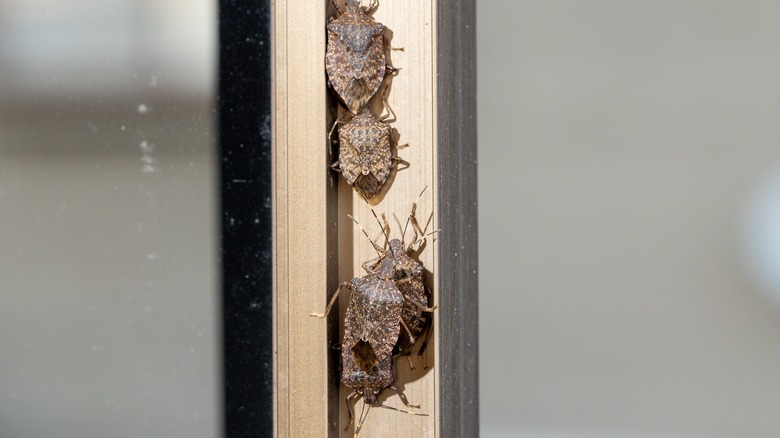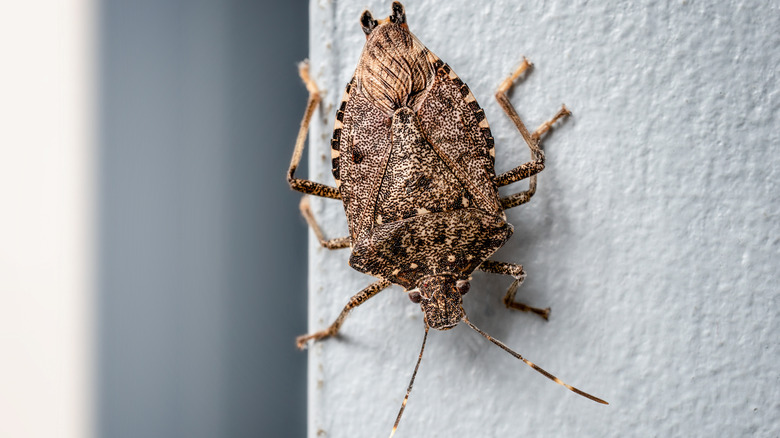Do Conventional Pest Deterrents Work Against Stink Bugs? What To Know Before You Try
It might surprise you to know that there are more than 260 types of stink bugs (Pentatomidae) in North America, the most common being the green, brown, or brown marmorated (an invasive species that originated in Asia). They are basically harmless in that they don't bite or sting, but anyone who has disturbed one knows that they emit a pungent odor. Some people compare the scent to burnt rubber; others say it smells like skunk. That offensive odor is actually the stink bug's defense mechanism to protect them from predators, but it is also released when they are squashed. Another problem is the sheer number of them that can infest your home. Stink bugs can be a real nuisance, and there are doubts as to whether conventional pest deterrents will work. Are there common kitchen ingredients you can use for pest control or do you need to resort to toxic commercial chemicals? Could you just vacuum them up? There is confusion over what works and what doesn't.
According to the US Environmental Protection Agency (EPA), conventional aerosols and foggers labeled to kill stink bugs are usually effective. The problem is that these insecticides do not prevent stink bugs from returning. They also say you can vacuum them up, but it can be difficult to get the smell out of the vacuum cleaner. There are popular pest control hacks that don't actually work such as ultrasonic devices. So, what can you do to get rid of stink bugs?
The best approach isn't stink bug deterrents, it's preventing them from getting in
Essential oils like neem and peppermint can be effective natural deterrents against stink bugs. Strategic planting of basil and catnip can prevent them from entering the house. Most of the time stink bugs are actually quite happy in the garden. However, when temperatures start to drop, your home becomes very inviting to them. Finding stink bugs on the walls or near windows and doors is a clear sign you are about to get uninvited guests. The EPA and other sources recommend a series of steps to stop them from coming inside. This includes sealing cracks in the foundation and weather-stripping your doors. You can also caulk around your windows and anywhere pipework enters your home. Not only will this keep those pesky stink bugs outside, but it will also help keep the heat in! Clearing dead leaves and debris from around the house would also be beneficial, as the stink bugs could use it as a staging post before invasion.
Unfortunately, stink bugs can squeeze through tiny gaps and cracks, so if you're struggling to control them, it may be time to call an expert. Before you do, be sure to know the important questions you should ask pest control professionals before hiring them. The last thing you need is someone without the experience necessary to deal with stink bugs effectively.

